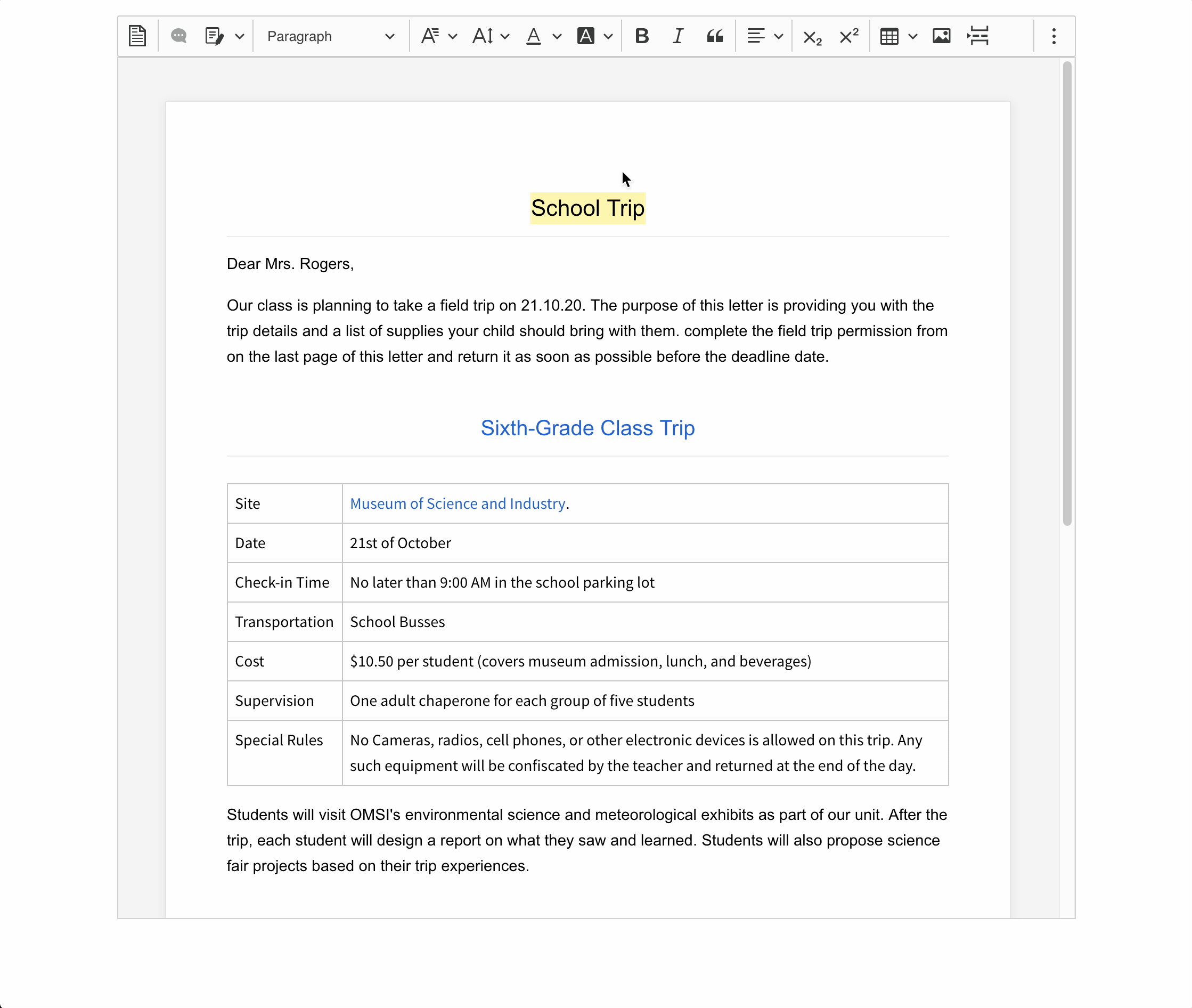Export to Word – overview
CKEditor Cloud Services offers a fast and highly scalable service enabling the user to export documents to a Microsoft Word .docx file. The feature is available as a service, making it possible to send an HTML string straight to the Cloud Services server for more advanced use or as a convenient CKEditor 5 WYSIWYG editor plugin for ease of use in less demanding cases.
This is a premium feature. You can purchase a license here or contact us for a tailored offer. Let us know if you have any feedback or questions!
If this feature is used without authentication, the resulting document will be watermarked.
The HTML to DOCX converter provides an API for converting HTML documents to Microsoft Word .docx files. The service generates a Word file and returns it to the user so they can save it in the .docx format on their disk. To integrate the feature into your environment, first, check the Quick start guide to start using it.
You can also test the feature using the export to Word demo page.
The following options are available while using the converter service:
Any HTML5-compliant content can be sent to the converter.
A CSS style sheet, that will be used to style the document content during the HTML to DOCX conversion.
The styles can be applied inline directly in the HTML but it is recommended to add these via the css option to reduce the size of the HTTP request payload.
The config option allows adding headers and footers to the generated document and integrating collaboration features. It provides the following options:
document– Set various document properties.headers– Add headers to the generated Word document.footers– Add footers to the generated Word document.collaboration_features– Provide metadata for comments and suggestions contained in the document.base_url– Set the base URL to use for all relative URLs of images and links.extra_http_headers– Allow setting extra HTTP headers for resources requiring additional authorization.timezone– Specify a time zone for dates and times in features that don’t support time zones.merge_fields– Provide configuration and data for merge fields contained in the document.watermark– Add a watermark to the generated Word document.
You can learn more about using options in the converter documentation.
The Export to Word CKEditor plugin allows you to easily print the WYSIWYG editor content to a .docx file. When enabled, this feature sends the content of your editor together with the styles that are used to display it to the CKEditor Cloud Services HTML to Word converter service. The service then generates a Word document that the user can download.
Thanks to this plugin, it takes exactly one button click to get a .docx file with content formatted the same way as in the CKEditor 5 WYSIWYG editor. An easy solution for integrations, that does not demand editor data to be processed further once it is edited.

The Export to Word service is a service that generates .docx files based on the data provided by the customer (HTML, CSS). To perform the conversion, it requires the data sent from the editor or a database, but the service itself is fully stateless.
The data (especially your sensitive data: HTML, CSS, comments, suggestions) is used only during the processing. However, we store some information needed for billing and maintaining our system. We try to reduce stored data to a required minimum and at this moment we store such information as the number and duration of exports, the final document size, the number of unique exports, and statistical data (used features, IP addresses, editor versions).
All logs related to processing requests are saved only in case of unexpected situations and are stored for 14 days. The data in logs includes an error message, stack trace and information about the request.